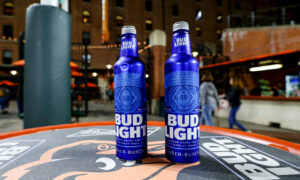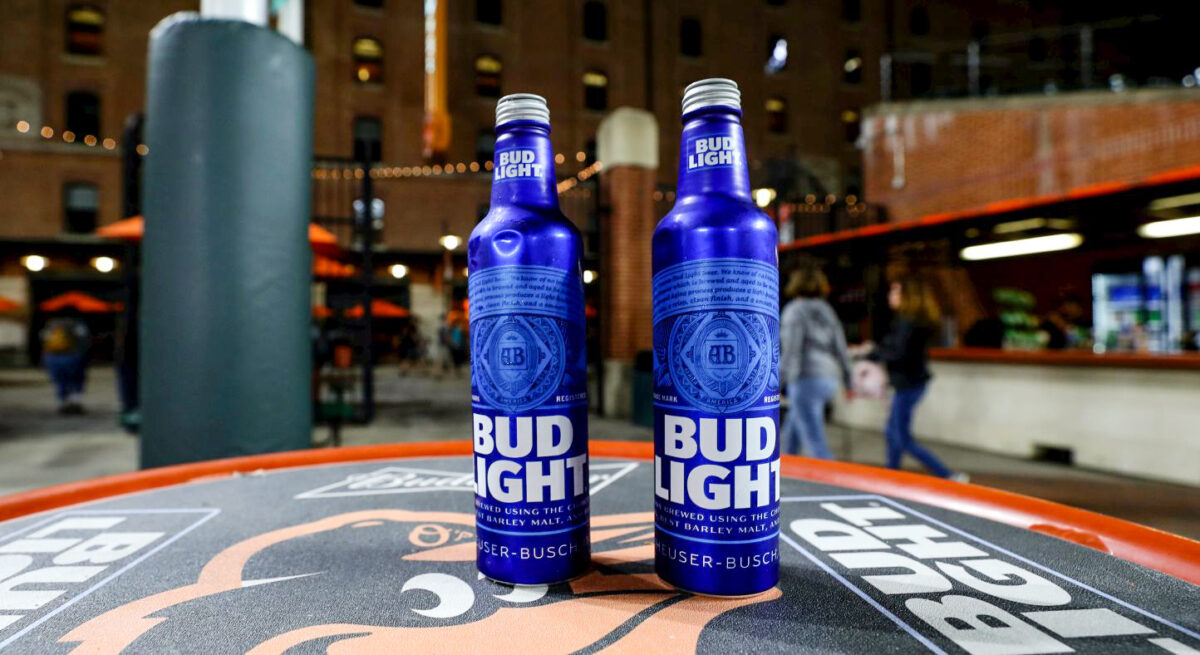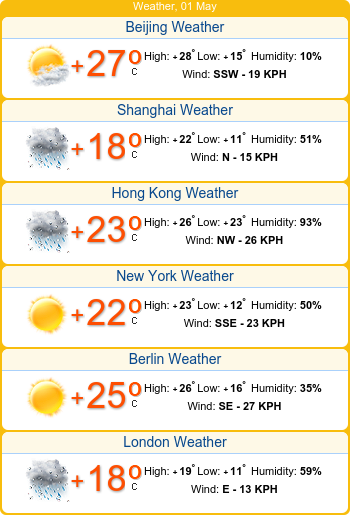Former Anheuser-Busch Executive Says Bud Light Backlash Isn’t ‘Going Away’
A former Anheuser-Busch executive is warning that the Bud Light boycott isn’t going away anytime in the near future after the brand reported yet another decline in sales amid the backlash over its decision to engage in an advertising campaign with transgender activist Dylan Mulvaney. “Consumers feel like they’re having an impact. And every single week these sales numbers are being reported, and they’re getting worse and worse every single week. So I see this continuing to drag on until Bud Light makes a comment about what they stand for and what customers they’re going to serve,” former Anheuser-Busch executive Anson Frericks told Fox News on Friday. For the first week of May, Bud Light’s sales continued to see a decline, according to recent data. After Mulvaney posted a specially made Bud Light beer can with the transgender activist’s face, some conservative pundits and celebrities called for a boycott. “With Bud Light, that was never part of the brand or part of the message. And I think that’s what’s upset so many people here. And that’s why I think this boycott is going to go on a lot longer than people give it credit for,” Frericks told the network. While some analysts and researchers have predicted that the Bud Light boycott may not have an impact, Frericks signaled that it may stick around. “There’s two reasons that boycotts tend to be successful. The first is when it’s easy for consumers to switch to other brands. And it’s secondarily when people feel like they’re having an impact,” Frericks told Fox News. “And in this, Bud Light, it’s not very that much different than Coors Light or Miller Lite. It’s water, it’s barley, it’s hops. What sets it apart is its messaging. And so it’s easy for consumers to switch the grocery store, the convenience store, and … consumers feel like they’re having an impact.” He added: “What does Bud Light stand for? Bud Light … was a brand that was never about politics. This is always about a brand that brought people together. It was about football, It was about sports. It was about music. It never got involved in political situations. That’s why it was enjoyed by both Republicans and Democrats equally, and that was what made the brand actually remarkable, is that it was remarkably unpolitical and this is just a political situation they should not have got themselves in.” Bud Light retail sales in the United States were down 23.6 percent in the week ending May 6, surpassing the 23.3 percent decline that it saw at the end of April, according to Bump Williams Consulting and NielsenIQ. Sales volumes for Anheuser-Busch dropped 9.7 percent in the first week of May, representing a slight improvement over the 11.4 percent drop the week prior, according to the figures. “Trends aren’t getting much worse, but certainly not getting any better either,” Beer Business Daily said in a commentary on the latest sales figures. About a week ago, Anheuser-Busch revealed that it will change its marketing structure in the midst of the backlash. While the firm didn’t mention Mulvaney or the boycott, a spokesperson for the brewing giant told a local outlet that “we have communicated some next steps with our internal teams and wholesaler partners.” “First, we made it clear that the safety and welfare of our employees and our partners is our top priority,” the company spokesperson said before adding that a new executive was tapped to head a marketing division. “Todd Allen was appointed Vice President of Bud Light reporting directly to Benoit Garbe, U.S. Chief Marketing Officer,” the spokesperson said. “Third, we made some adjustments to streamline the structure of our marketing function to reduce layers so that our most senior marketers are more closely connected to every aspect of our brands activities. These steps will help us maintain focus on the things we do best: brewing great beer for all consumers, while always making a positive impact in our communities and on our country.” In early April, Mulvaney posted a series of videos advertising Bud Light and showing off the personalized can. The hashtag “#BudLightPartner” was added in at least one of the posts. But Anheuser-Busch CEO Michel Doukeris told the Financial Times in an interview that the boycott is being driven by “misinformation and confusion” posted on social media. He also tried to distance Bud Light from Mulvaney, saying it was merely “one can” that was produced with Mulvaney’s likeness, and there was never any intention to mass-produce it. “It was one post. It was not an advertisement,” Doukeris told the paper. In the past several days, some conservative commentators have suggested a boycott of Miller Lite, a brand owned by Molson Coors, after the company created an ad campaign earlier this year. In that campaign, actress Ilana Glazer is seen criticizing Miller Lite’s previous ad campaigns and repeated what the commentators said were “woke” talking points.


A former Anheuser-Busch executive is warning that the Bud Light boycott isn’t going away anytime in the near future after the brand reported yet another decline in sales amid the backlash over its decision to engage in an advertising campaign with transgender activist Dylan Mulvaney.
“Consumers feel like they’re having an impact. And every single week these sales numbers are being reported, and they’re getting worse and worse every single week. So I see this continuing to drag on until Bud Light makes a comment about what they stand for and what customers they’re going to serve,” former Anheuser-Busch executive Anson Frericks told Fox News on Friday.
For the first week of May, Bud Light’s sales continued to see a decline, according to recent data. After Mulvaney posted a specially made Bud Light beer can with the transgender activist’s face, some conservative pundits and celebrities called for a boycott.
“With Bud Light, that was never part of the brand or part of the message. And I think that’s what’s upset so many people here. And that’s why I think this boycott is going to go on a lot longer than people give it credit for,” Frericks told the network.
While some analysts and researchers have predicted that the Bud Light boycott may not have an impact, Frericks signaled that it may stick around.
“There’s two reasons that boycotts tend to be successful. The first is when it’s easy for consumers to switch to other brands. And it’s secondarily when people feel like they’re having an impact,” Frericks told Fox News. “And in this, Bud Light, it’s not very that much different than Coors Light or Miller Lite. It’s water, it’s barley, it’s hops. What sets it apart is its messaging. And so it’s easy for consumers to switch the grocery store, the convenience store, and … consumers feel like they’re having an impact.”
He added: “What does Bud Light stand for? Bud Light … was a brand that was never about politics. This is always about a brand that brought people together. It was about football, It was about sports. It was about music. It never got involved in political situations. That’s why it was enjoyed by both Republicans and Democrats equally, and that was what made the brand actually remarkable, is that it was remarkably unpolitical and this is just a political situation they should not have got themselves in.”
Bud Light retail sales in the United States were down 23.6 percent in the week ending May 6, surpassing the 23.3 percent decline that it saw at the end of April, according to Bump Williams Consulting and NielsenIQ. Sales volumes for Anheuser-Busch dropped 9.7 percent in the first week of May, representing a slight improvement over the 11.4 percent drop the week prior, according to the figures.
“Trends aren’t getting much worse, but certainly not getting any better either,” Beer Business Daily said in a commentary on the latest sales figures.
About a week ago, Anheuser-Busch revealed that it will change its marketing structure in the midst of the backlash. While the firm didn’t mention Mulvaney or the boycott, a spokesperson for the brewing giant told a local outlet that “we have communicated some next steps with our internal teams and wholesaler partners.”
“First, we made it clear that the safety and welfare of our employees and our partners is our top priority,” the company spokesperson said before adding that a new executive was tapped to head a marketing division.
“Todd Allen was appointed Vice President of Bud Light reporting directly to Benoit Garbe, U.S. Chief Marketing Officer,” the spokesperson said. “Third, we made some adjustments to streamline the structure of our marketing function to reduce layers so that our most senior marketers are more closely connected to every aspect of our brands activities. These steps will help us maintain focus on the things we do best: brewing great beer for all consumers, while always making a positive impact in our communities and on our country.”
In early April, Mulvaney posted a series of videos advertising Bud Light and showing off the personalized can. The hashtag “#BudLightPartner” was added in at least one of the posts.
But Anheuser-Busch CEO Michel Doukeris told the Financial Times in an interview that the boycott is being driven by “misinformation and confusion” posted on social media. He also tried to distance Bud Light from Mulvaney, saying it was merely “one can” that was produced with Mulvaney’s likeness, and there was never any intention to mass-produce it.
“It was one post. It was not an advertisement,” Doukeris told the paper.
In the past several days, some conservative commentators have suggested a boycott of Miller Lite, a brand owned by Molson Coors, after the company created an ad campaign earlier this year. In that campaign, actress Ilana Glazer is seen criticizing Miller Lite’s previous ad campaigns and repeated what the commentators said were “woke” talking points.












